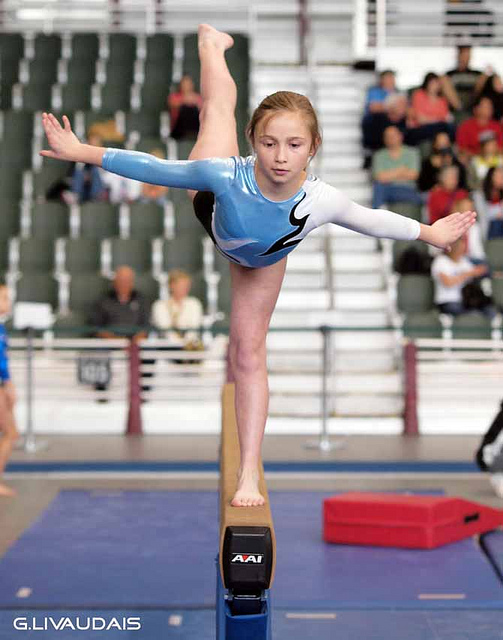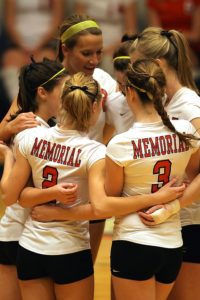- Calls to this hotline are currently being directed to Within Health, Fay or Eating Disorder Solutions
- Representatives are standing by 24/7 to help answer your questions
- All calls are confidential and HIPAA compliant
- There is no obligation or cost to call
- Eating Disorder Hope does not receive any commissions or fees dependent upon which provider you select
- Additional treatment providers are located on our directory or samhsa.gov
5 Tips for Coaches to Identify Eating Disorders in Athletes

Athletes are particularly vulnerable to developing an eating disorder. While participating in athletics can be a great way to build self-esteem and promote positive well-being, the immense pressure to compete and to win along with other risk factors can create an environment conducive to developing an eating disorder. It is important to help coaches identify eating disorders in their athletes.
Five tips to help coaches identify eating disorders in athletes
1. Understand the risks. As a coach, it is crucial to understand the risks an athlete has of developing an eating disorder. Athletes who compete in sports that tend to emphasize diet, appearance, size, and weight are at particular risk of developing anorexia, bulimia or binge eating disorder.
Additionally, those sports that require body conscious uniforms, that are judged rather than refereed, that focus on individual versus team performance present additional risks to athletes.
2. Know the signs and symptoms. Coaches are to be aware and vigilant of any eating disorder signs and symptoms, as coaches are likely to be one of the first persons to notice any eating disorder symptoms an athlete may be demonstrating.
3. Support your athletes. Coaches can support athletes by focusing on the athlete as a whole person rather than their success and performance alone. Additionally, coaches can emphasize factors such as motivation and enthusiasm rather than body weight or shape to help protect athletes from eating disorders.
 Too, a positive sports environment that has healthy attitudes towards size and shape is essential, and coaches can intentionally create this kind of healthy sports environment. If an athlete is in treatment for anorexia, bulimia or binge eating disorder, you can support them by working closely with their eating disorder treatment team.
Too, a positive sports environment that has healthy attitudes towards size and shape is essential, and coaches can intentionally create this kind of healthy sports environment. If an athlete is in treatment for anorexia, bulimia or binge eating disorder, you can support them by working closely with their eating disorder treatment team.
4. Seek support. Coaches are highly trusted and respected by their athletes, which provides a meaningful opportunity to support those athletes who may be struggling with an eating disorder. If needing to intervene, it’s important to do so sensitively and in private. You can have resources on hand and help connect them to a physician and/or counselor who specializes in eating disorders.
5. Continue to learn about eating disorders. The National Eating Disorder Association has a wonderful Coach & Trainer Toolkit. It’s an excellent resource for coaches to continue to learn about eating disorders and understand how they can support their athletes who may be struggling with an eating disorder.
Sources:
National Eating Disorder Association. Statistics and Research on Eating Disorders. Retrieved from https://www.nationaleatingdisorders.org/statistics-research-eating-disorders on July 9, 2019.
Thompson, R. A., & Sherman, R. T. (2010). Eating disorders in sport. New York: Routledge.
National Eating Disorder Association. Eating Disorders and Athletes. Retrieved from https://www.nationaleatingdisorders.org/eating-disorders-athletes on July 9, 2019.
National Eating Disorder Association. Coach and Trainer Toolkit. Retrieved from https://www.nationaleatingdisorders.org/sites/default/files/nedaw18/3.CoachandTrainerToolkitCopy.pdf on July 9, 2019.
About the Author:
 Chelsea Fielder-Jenks is a Licensed Professional Counselor in private practice in Austin, Texas. Chelsea works with individuals, families, and groups primarily from a Cognitive Behavioral Therapy (CBT) and Dialectical Behavior Therapy (DBT) framework.
Chelsea Fielder-Jenks is a Licensed Professional Counselor in private practice in Austin, Texas. Chelsea works with individuals, families, and groups primarily from a Cognitive Behavioral Therapy (CBT) and Dialectical Behavior Therapy (DBT) framework.
She has extensive experience working with adolescents, families, and adults who struggle with eating, substance use, and various co-occurring mental health disorders. You can learn more about Chelsea and her private practice at ThriveCounselingAustin.com.
The opinions and views of our guest contributors are shared to provide a broad perspective of eating disorders. These are not necessarily the views of Eating Disorder Hope, but an effort to offer a discussion of various issues by different concerned individuals.
We at Eating Disorder Hope understand that eating disorders result from a combination of environmental and genetic factors. If you or a loved one are suffering from an eating disorder, please know that there is hope for you, and seek immediate professional help.
Published on July 15, 2019, on EatingDisorderHope.com
Reviewed & Approved on July 15, 2019, by Jacquelyn Ekern MS, LPC

The EatingDisorderHope.com editorial team comprises experienced writers, editors, and medical reviewers specializing in eating disorders, treatment, and mental and behavioral health.

